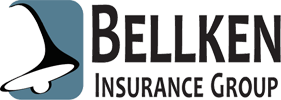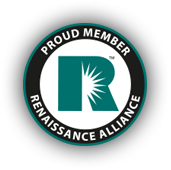Florida Pest Control Business Insurance
8:30am - 5:00pm Mon-Fri
Will Reply in 15min*
Top Recommended Business Insurance Policies

Index
Understanding the Florida Pest Control Industry Landscape
Why Pest Control Business Insurance is Essential in Florida
Types of Insurance Coverage for Florida Pest Control Businesses
Factors Affecting Pest Control Insurance Costs in Florida
Industry Trends Impacting Pest Control Insurance
Contact Us
Phone
Location
Florida's pest control industry is a vital part of the state's economy, accounting for more than 14% of pest management establishments in the entire United States as of 2021. With a market that generated over $1.3 billion in direct sales revenue and supported nearly 27,000 jobs, it's clear that pest control businesses in Florida play a crucial role in protecting homes, businesses, and public health from unwanted pests. Given the size and significance of this industry, understanding the nuances of pest control business insurance in Florida is essential for operators, whether they are small, midsize, or large companies.
In this comprehensive guide, we’ll explore everything you need to know about insurance for pest control businesses in Florida, including the types of coverage available, why insurance is critical, and how the unique characteristics of the Florida pest management industry influence insurance needs. For more detailed economic insights, the
University of Florida’s Food and Resource Economics Department provides extensive research on the industry’s impact and structure.
Understanding the Florida Pest Control Industry Landscape
Before diving into insurance specifics, it’s important to understand the context in which Florida pest control businesses operate. The industry is one of the nation's leaders, comprising a significant share of the U.S. market. In 2020, Florida's pest management sector generated approximately $2.7 billion in total economic output when accounting for direct, indirect, and induced effects. This highlights not only the industry's size but also its interconnectedness with other sectors of the economy. The demand for pest control services is particularly influenced by Florida's unique climate, which fosters a year-round breeding ground for pests, making effective management crucial for both residential and commercial properties.
Most pest control operators in Florida are small to midsize businesses strategically located near densely populated areas. This proximity is essential because pest control services—ranging from insect and rodent extermination to mosquito and termite control—are in high demand in urban and suburban communities. The diversity of services offered also means that pest control businesses face a variety of risks, from chemical handling to equipment use, all of which must be considered when selecting insurance coverage. Additionally, the competitive nature of the industry compels operators to stay updated with the latest pest control technologies and methods, ensuring they can meet the evolving needs of their clientele while adhering to regulatory standards.
Key Industry Services
Florida’s pest management companies provide a broad range of services, including insect extermination, bedbug treatment, mosquito control, termite management, and rodent control. Each service carries distinct operational hazards. For example, termite control often involves the use of heavy equipment and chemicals near homes, while mosquito control might require aerial spraying or specialized fogging equipment. These operational differences influence the types of insurance policies pest control businesses need to protect themselves adequately. Furthermore, with the increasing awareness of environmental sustainability, many companies are now adopting integrated pest management (IPM) strategies, which focus on environmentally friendly practices and may require additional training and certifications for their staff.
In addition to traditional pest control methods, Florida businesses are also seeing a rise in demand for preventive services. Homeowners and property managers are increasingly interested in proactive measures to avoid infestations before they occur, leading to the growth of inspection services and ongoing maintenance plans. This shift not only enhances customer satisfaction but also provides a more stable revenue stream for pest control operators. As the industry continues to evolve, companies must remain agile, adapting their service offerings to meet changing consumer preferences and regulatory requirements, all while ensuring they have the necessary insurance coverage to mitigate potential liabilities.
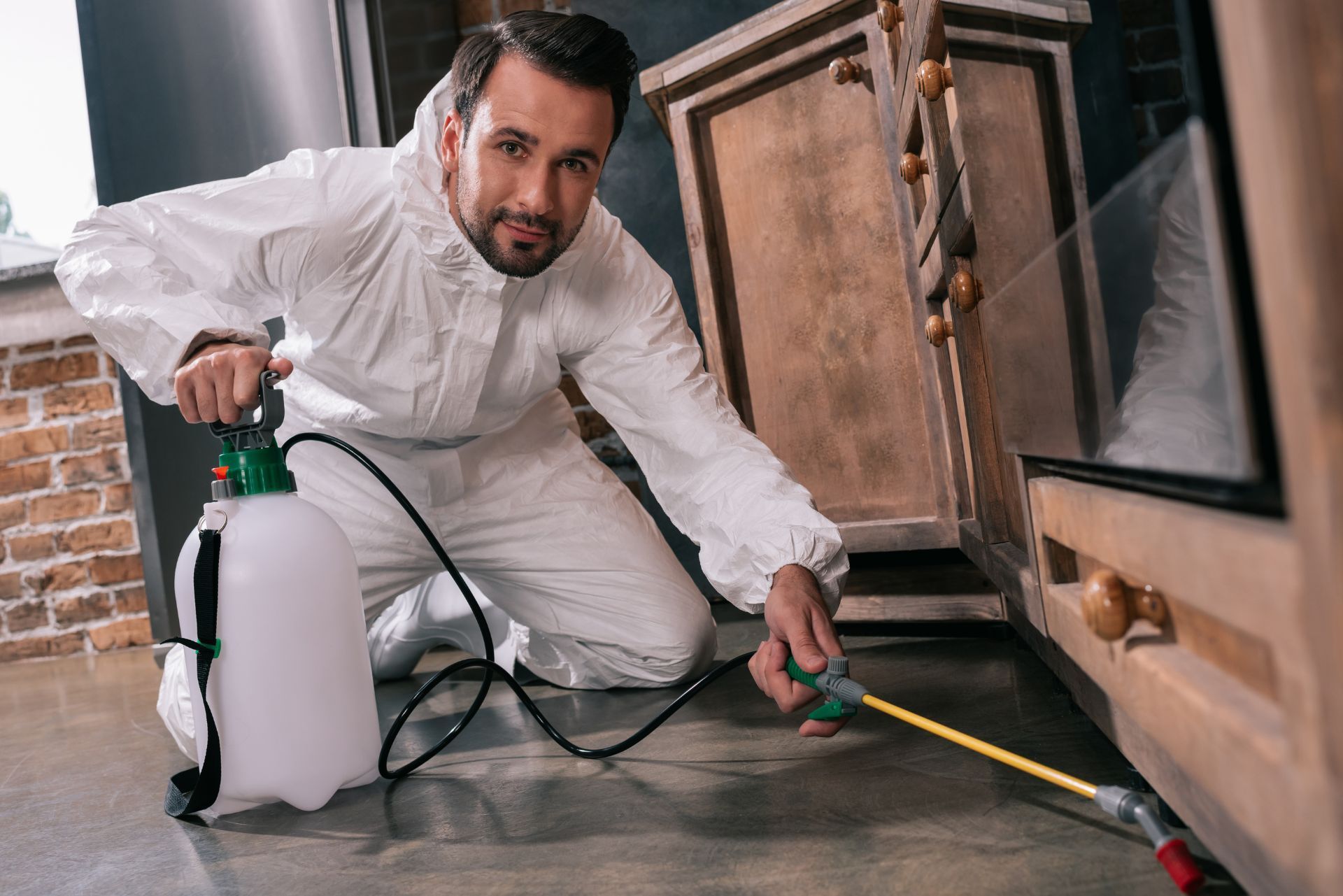
Why Pest Control Business Insurance is Essential in Florida
Running a pest control business involves numerous risks that can lead to financial loss or legal liabilities. Florida’s climate, with its warm and humid conditions, creates an ideal environment for pests, which keeps demand for pest control high but also increases operational challenges. Insurance is a safeguard that helps companies manage these risks effectively.
One of the primary reasons pest control businesses must have insurance is to protect against liability claims. For instance, if a customer experiences property damage or health issues due to pesticide application, the business could face costly lawsuits. Additionally, accidents involving employees, such as chemical exposure or equipment injuries, can result in workers' compensation claims. Without proper insurance, these incidents could threaten the financial stability of the company.
Moreover, the pest control industry in Florida is subject to regulatory oversight regarding the use of pesticides and environmental safety. Insurance can help cover costs related to compliance issues or accidental environmental damage, which are critical given the state's strict environmental laws.
Furthermore, pest control businesses often face unique challenges that can arise from the nature of their work. For example, the use of specialized equipment and chemicals requires not only skilled technicians but also adherence to safety protocols. If an employee is injured while using a sprayer or if a vehicle used for transporting chemicals is involved in an accident, the financial repercussions can be severe. Insurance can provide coverage for these types of incidents, ensuring that the business can continue operating without the burden of overwhelming costs.
Additionally, having comprehensive insurance can enhance a pest control company's reputation. Clients are more likely to trust a business that is adequately insured, as it demonstrates a commitment to professionalism and safety. This trust can lead to increased customer loyalty and referrals, which are vital for growth in a competitive market. In an industry where word-of-mouth and online reviews play a significant role in attracting new clients, being insured can serve as a powerful marketing tool that sets a business apart from its competitors.
Types of Insurance Coverage for Florida Pest Control Businesses
Given the complex risks involved, pest control businesses in Florida typically require a combination of insurance policies tailored to their specific operations. Below are the most common types of coverage pest control companies should consider:
General Liability Insurance
This is the cornerstone of any pest control business insurance portfolio. General liability insurance protects against third-party claims of bodily injury, property damage, and personal injury. For example, if a customer's property is damaged during a termite treatment or if a visitor slips and falls on the business premises, this coverage helps pay for legal fees and settlements. Additionally, it can cover claims related to advertising injuries, such as copyright infringement or defamation, which can be particularly relevant for businesses that engage in promotional activities to attract new clients.
Professional Liability Insurance
Also known as errors and omissions insurance, this coverage protects pest control businesses from claims related to negligence, mistakes, or failure to perform professional duties. In an industry where improper pest control methods can lead to serious health or property consequences, professional liability insurance is crucial. It can also provide coverage for claims arising from inadequate pest management advice, ensuring that businesses can defend themselves against allegations that their services did not meet industry standards or client expectations.
Workers’ Compensation Insurance
Florida law requires businesses with employees to carry workers’ compensation insurance. This policy covers medical expenses and lost wages for employees injured on the job, which is particularly important in pest control due to the physical and chemical hazards involved. Furthermore, it can also provide rehabilitation services and support for workers who may need to transition back to work after an injury, helping to maintain a productive workforce and reduce turnover costs.
Commercial Auto Insurance
Many pest control companies use vehicles to transport equipment and personnel. Commercial auto insurance covers accidents involving these vehicles, protecting the business from liability and repair costs. This type of coverage is essential not only for protecting the company’s assets but also for ensuring that employees are safe while on the road. Additionally, some policies may include coverage for equipment that is damaged while being transported, providing an extra layer of protection for valuable tools and supplies.
Pollution Liability Insurance
Given the use of pesticides and chemicals, pollution liability insurance is critical for pest control businesses. This coverage protects against claims arising from environmental contamination or accidental chemical spills. It can also address issues related to the improper disposal of hazardous materials, which is vital for maintaining compliance with environmental regulations. As public awareness of environmental issues grows, having this insurance can enhance a company's reputation and reassure clients that they are committed to responsible practices.
Equipment and Property Insurance
This insurance covers damage to or loss of
business property, including equipment, tools, and office spaces. Pest control companies often invest in specialized equipment that can be costly to replace. Furthermore, this coverage can extend to loss due to theft, fire, or natural disasters, ensuring that businesses can quickly recover and resume operations. Many policies also allow for the inclusion of business interruption insurance, which compensates for lost income during periods when the business cannot operate due to a covered event, providing essential financial support during challenging times.
Factors Affecting Pest Control Insurance Costs in Florida
Insurance premiums for pest control businesses vary based on several factors unique to Florida’s market and regulatory environment. Understanding these can help business owners make informed decisions when shopping for insurance.
Business Size and Revenue
Smaller pest control companies with fewer employees and lower revenues generally pay lower premiums. However, as the business grows, the scale of operations increases exposure to risk, which can drive up insurance costs. Larger companies may also have more complex operations, requiring additional coverage options, such as workers' compensation and commercial auto insurance, further influencing overall premium rates. It's essential for business owners to regularly assess their insurance needs as they expand to ensure they are adequately covered without overpaying.
Service Types and Methods
The kinds of pest control services offered influence risk levels. For example, companies specializing in termite fumigation or mosquito spraying may face higher premiums due to the increased use of chemicals and equipment. Additionally, businesses that utilize eco-friendly or organic pest control methods may find that these practices can lead to lower premiums, as they often present a reduced risk of liability and environmental damage. As consumer preferences shift towards sustainable practices, pest control companies that adopt these methods not only enhance their market appeal but may also benefit from more favorable insurance rates.
Location and Customer Base
Operating in densely populated urban areas can increase liability risks, potentially raising insurance costs. Florida’s humid climate also means pest control services are in year-round demand, which can affect risk exposure. Furthermore, businesses that serve a diverse range of clients, from residential homes to commercial properties, may face different levels of risk associated with each customer type. Understanding the demographics of a customer base and the specific pest challenges they face can help businesses tailor their services and insurance needs more effectively.
Claims History
Businesses with a history of insurance claims may face higher premiums. Maintaining a strong safety record and implementing risk management practices can help reduce costs. This includes regular training for employees on safety protocols and the proper handling of chemicals, which not only minimizes the likelihood of accidents but also demonstrates to insurers a commitment to risk mitigation. Additionally, pest control companies that invest in technology, such as GPS tracking for service vehicles or advanced pest detection systems, can further enhance their safety measures, potentially leading to lower insurance premiums over time.
Industry Trends Impacting Pest Control Insurance
The Florida pest control industry is evolving, and these changes influence insurance needs and availability. For example, the industry has seen significant consolidation over the past decade, although overall market concentration remains low. This consolidation can lead to larger companies with more complex insurance requirements. As these larger entities emerge, they often seek to streamline their operations, which can include renegotiating their insurance policies to better align with their expanded services and geographical reach.
Additionally, the industry is projected to grow to $3 billion by 2025, reflecting increasing demand for pest management services. As businesses expand, they may require more comprehensive insurance packages to cover new risks. This growth can be attributed to heightened awareness of health and safety concerns among consumers, leading to a greater reliance on professional pest control services. Furthermore, the introduction of new technologies, such as eco-friendly pest management solutions, is reshaping the landscape, prompting companies to consider insurance that covers innovative practices and products.
Another notable trend is the rise of micro-captive insurance companies in Florida, which have increased by 2,200% over the past five years. These specialized insurance entities can offer tailored coverage options for pest control businesses looking for flexible and cost-effective risk management solutions. The appeal of micro-captives lies in their ability to provide customized policies that address the unique challenges faced by pest control operators, such as liability for pesticide application or property damage during service. Additionally, as more companies explore these options, they may find that micro-captives can also serve as a means of building equity, allowing them to invest in their own risk management strategies while potentially lowering overall insurance costs.
Moreover, the regulatory environment surrounding pest control is becoming increasingly stringent, with new laws and guidelines aimed at protecting both consumers and the environment. This shift necessitates that pest control companies stay informed about compliance requirements, which can directly impact their insurance needs. For instance, businesses may need coverage that specifically addresses liabilities related to environmental damage or employee safety, further complicating their insurance landscape. As these regulations evolve, insurance providers will need to adapt their offerings to ensure that pest control operators are adequately protected against emerging risks.
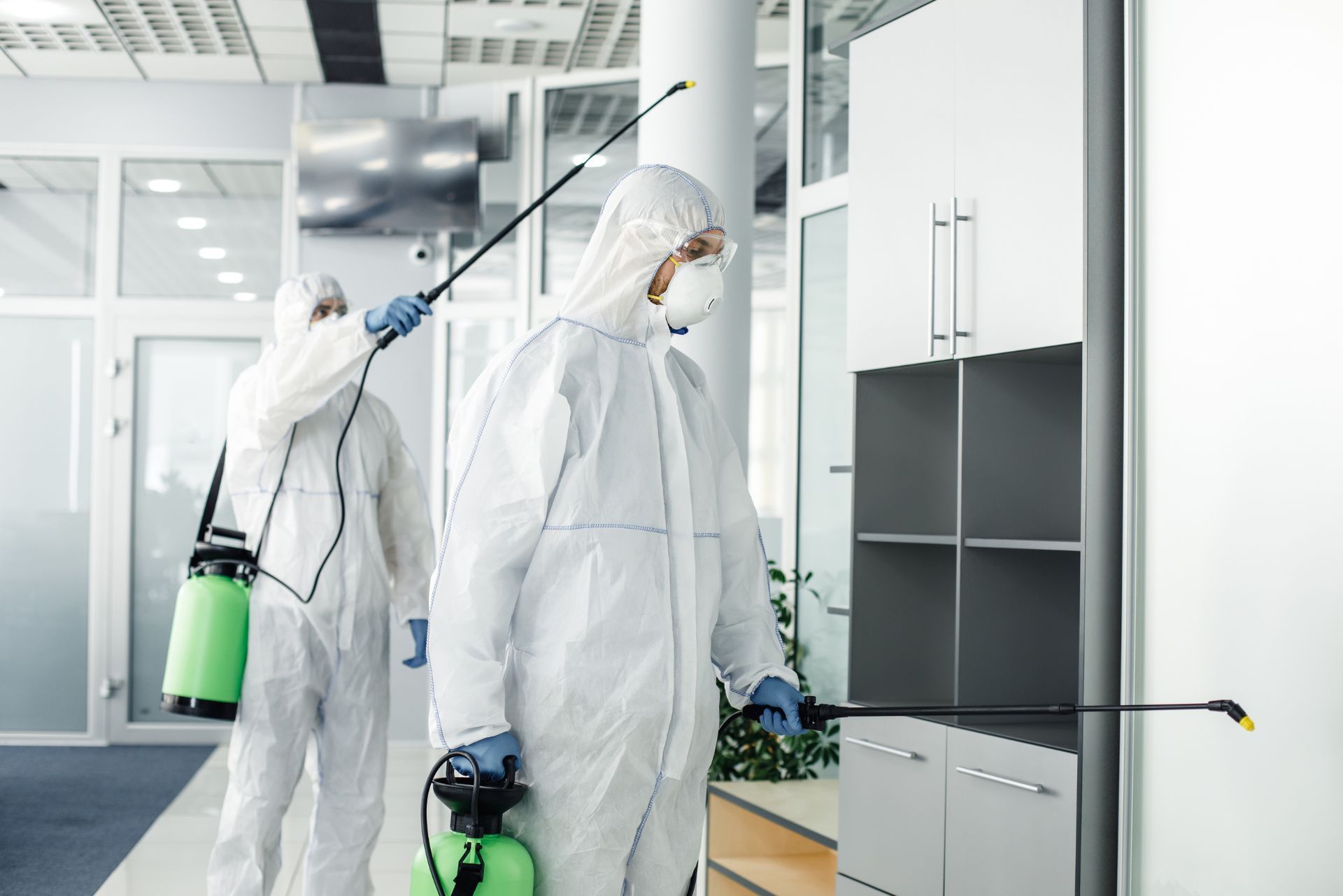
How to Choose the Right Insurance Provider
Selecting an insurance provider that understands the pest control industry is crucial. Providers with experience in this sector can offer policies that address the specific risks pest control businesses face, such as chemical handling, environmental liability, and equipment protection.
Business owners should look for insurers that provide comprehensive coverage options, competitive pricing, and responsive claims service. It’s also beneficial to work with agents who can help customize policies to fit the unique needs of a Florida pest control business.
Conclusion: Protecting Your Florida Pest Control Business
The pest control industry in Florida is a dynamic and essential sector, contributing significantly to the state's economy and public health. With over 14% of the nation’s pest management establishments located in Florida, and a market expected to reach $3 billion by 2025, pest control businesses must prioritize protecting their operations through adequate insurance coverage.
From general liability to pollution liability and workers’ compensation, the right insurance policies can safeguard against the diverse risks inherent in pest control work. Understanding the industry’s landscape, the types of coverage available, and the factors influencing insurance costs will empower business owners to make informed decisions that secure their company’s future.
For more detailed economic data and insights on Florida’s pest management industry, the
University of Florida’s Food and Resource Economics Department offers valuable resources. Additionally, industry forecasts from
IBISWorld provide a forward-looking perspective on market growth and trends.
